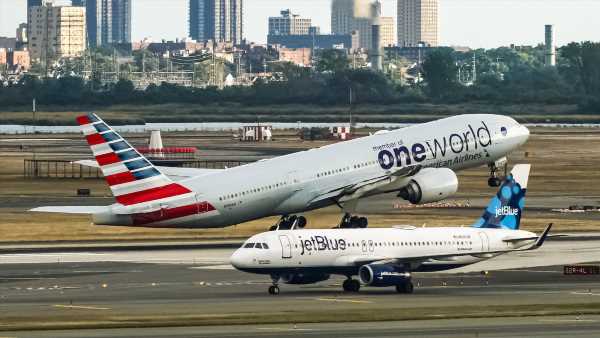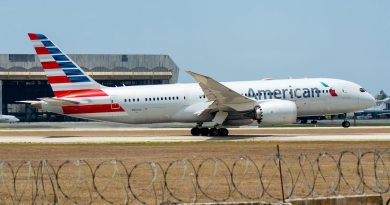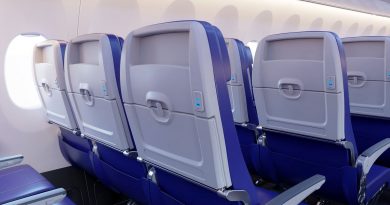Judge orders JetBlue and American to dissolve their Boston-New York alliance
A federal court has ordered the dissolution of the partnership between JetBlue and American Airlines in New York and Boston, commonly called the Northeast Alliance.
Judge Leo Sorkin of the U.S. District Court in Massachusetts sided with the Department of Justice, the District of Columbia and six states that sued to block the partnership as anticompetitive.
The ruling, which comes six months after the conclusion of a monthlong trial last November, includes an order to permanently block the two airlines from further implementing the NEA, effective in 30 days.
In rendering the decision, Sorkin stressed that both JetBlue and American are leading players in the Boston and New York markets. The two carriers comprise two of the top three airlines in Boston (along with Delta) and are third and fourth to Delta and United in the New York metropolitan area (United dominates Newark Airport).
But under the NEA, which went into effect in February 2021, JetBlue and American have transformed from competitors to partners in those markets, jointly scheduling most flights and sharing revenue.
“In both locations, the defendants vigorously competed on everything from fares to the features they offered customers. The NEA changes all of that,” Sorkin wrote. “It makes the two airlines partners, each having a substantial interest in the success of their joint and individual efforts, instead of vigorous, arms-length rivals regularly challenging each other in the marketplace of competition.
“Though the defendants claim their bigger-is-better collaboration will benefit the flying public, they produced minimal objectively credible proof to support that claim. Whatever the benefits to American and JetBlue of becoming more powerful — in the Northeast generally or in their shared rivalry with Delta — such benefits arise from a naked agreement not to compete with one another.”
The agreement, the judge added, amounts to the type of “unreasonable restraint of trade” that federal antitrust laws were designed to prevent.
In a statement, American said it is considering its next steps.
“The Court’s legal analysis is plainly incorrect and unprecedented for a joint venture like the Northeast Alliance,” the carrier said. “There was no evidence in the record of any consumer harm from the partnership, and there is no legal basis for inferring harm simply from the fact of collaboration. The Northeast Alliance has been a huge win for customers and anything but anticompetitive.”
JetBlue also said it is evaluating what course of action to take.
“We made it clear at trial that the Northeast Alliance has been a huge win for customers,” the statement reads. “Through the NEA, JetBlue has been able to significantly grow in constrained Northeast airports, bringing the airline’s low fares and great service to more routes than would have been possible otherwise.”
Travel Weekly sought a request for comment from the Justice Department early Friday evening.
Sorkin did note that since the inception of the NEA, American — with JetBlue’s cooperation — has made more efficient use of its landing rights at capacity-limited LaGuardia and JFK airports. That has incurred in part because American has leased 100 landing slots to JetBlue, which is using larger planes on average than American was at LaGuardia and JFK.
But Sorkin concluded that the partnership has had negative competitive effects. For example, he said the NEA has caused American to curtail growth plans at its Philadelphia hub and has led to JetBlue pausing or curtailing growth plans at Fort Lauderdale, one of JetBlue’s focus cities.
Sorkin also said the partnership has led to decreased capacity, lower frequencies and reduced consumer choice on multiple routes. On 13 routes touching LaGuardia, he wrote as an example, one of the two carriers has exited.
Source: Read Full Article



